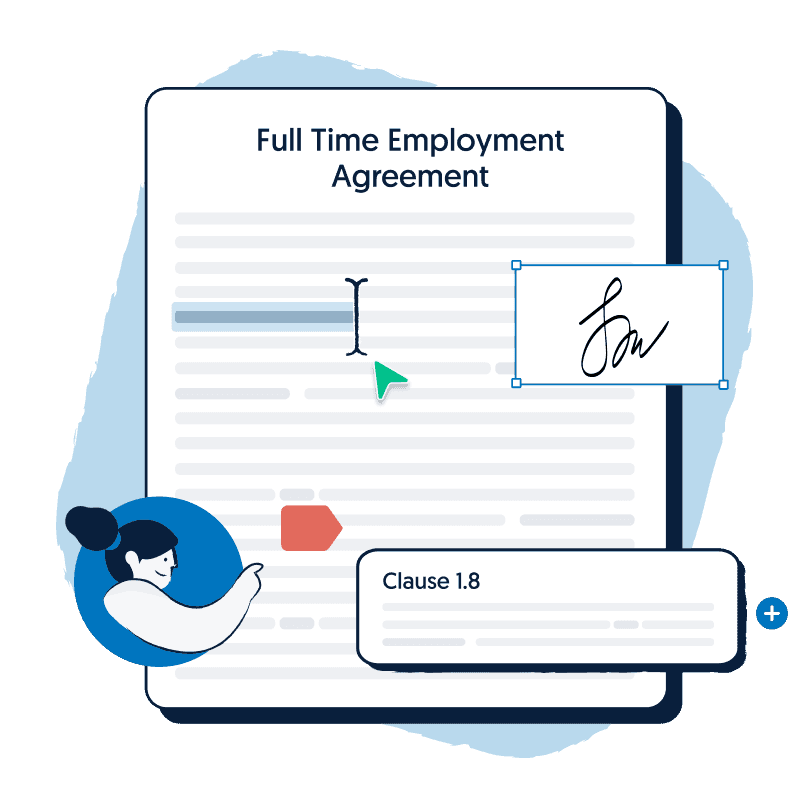Sydney-based lawyer. Formerly Legal Intern at Lawpath.
💡Key Insight
- When a company is sold, employee stock options (ESOs) may be treated differently based on whether they are vested or unvested, with vested options often cashed out, substituted for equivalent options in the acquiring company, or cancelled if their value is below the strike price.
- Unvested stock options may be cancelled, accelerated to vest early, or converted into equivalent equity in the acquiring company depending on the sale terms and the employee share scheme agreement.
- Employee stock options function as equity compensation incentives and typically have vesting schedules, strike prices and expiry dates that determine employee rights in the context of a sale.
- Clear contractual definitions in an Employee Share Scheme help manage expectations and disputes when ownership changes occur, highlighting the value of structured equity agreements.
This article relates to employee stock options. For information on put and call options traded by investors, click here.
It is common place for start-ups and small businesses to offer employee stock options, or ESOs to employees as part of an equity compensation plan. Indeed, it is also common place for the start-ups and small businesses who use employee stock options to be purchased or acquired by other companies. This article explains how employee stock options work, and what happens to them when the company they relate to is sold.
Employee stock options explained
Employee stock options are offered by employers within an Employee Share Scheme. To put it simply, an employee stock option gives an employee the opportunity to buy a specified number of shares in the company they work for in the future. The key elements of employee stock options are as follows;
- Strike price – The price for which shares may be purchased at a future date. This is usually the market rate at the time the shares are offered.
- Vesting Schedule – Details time conditions upon which the options may be purchased. Commonly, this is staggered over time because it promotes loyalty and prevents employees from exercising their options early. Once shares vest, they may be purchased by the employee. If shares have already been issued and an employer wishes to impose vesting conditions on those shares, use of a Share Vesting Agreement is recommended.
- Expiry date – Employee stock options can only be purchased within a certain period. Consequently, if the options are not purchased within that period, they are lost.
The benefits
Employee stock options are a useful tool to motivate staff performance. This is because strong company performance throughout the vesting schedule will lead to higher share prices. This gives employees with stock options the ability to make a profit through buying at the strike-through price and selling at the higher new market price. Consider the following example;
- Samantha is hired by a start-up technology company. As part of her remuneration package, she is offered stock options to purchase 1000 shares at a strike price of $10. The vesting schedule allows Samantha to purchase 1/4 of these shares annually. Consequently, all 1000 shares may be purchased after 4 years. Samantha agrees to participate in the scheme.
- The company performs strongly. Because of this, after 4 years the market share price has risen to $20 a share.
- Samantha exercises her stock options. In doing so, she enters into a shareholder agreement and purchases her shares for the strike price of $10. Her share portfolio is worth $20k.

Get your Full Time Employment Agreement legal document for free.
Further considerations
In 2015, the Australian Taxation Office changed the way they treated Employee Share Schemes. This had the aim of making them more attractive to start-ups and small businesses. The changes are detailed below;
| Pre-2015 Changes | Post-2015 Changes |
| Employees purchasing shares as part of ESO scheme had to pay tax, even though they were yet to receive financial benefit. | Employees only required to pay tax once they receive a financial benefit from the shares (when they sell the shares). |
This added incentive hinges upon a number of factors;
- Options must be held for 3 years minimum to benefit from tax concessions.
- Individual employees cannot own in excess of 10% of the company.
- The employer must be an unlisted (private) Australian company with annual turnover less than $50m. It must also not be more than 10 years old.
Stock options on sale or acquisition
What happens to employee stock options when a company is sold varies, depending upon whether they are vested or unvested. If vested, meaning they are able to be exercised, ESOs may;
- Be cashed out at market value, or;
- Be substituted for the same value of stock in the purchasing company. These will be vested options, meaning you are able to exercise them, or;
- If the value is less than the strike price, be cancelled or paid out with a nominal sum.
If ESOs have not vested, purchasing companies may;
- Be cancelled because the employee is yet to ‘earn’ their ESOs.
- Speed up the vesting process and allow the shares to be cashed out.
- Substitute the shares for an equal value of stock in the purchasing company.
In general, the outcome for employee stock options varies depending upon the particular circumstance of acquisition. It is advisable to set out rights and obligations for ESOs within an Employee Share Scheme because this may help avoid dispute.
Key takeaways
- An Employee Share Scheme sets out the conditions under which employee stock options may be exercised.
- Because of the complexity involved in setting up employee stock option plans, consulting an experienced Startup Lawyer is advised.

Get a fixed-fee quote from Australia's largest lawyer marketplace.






